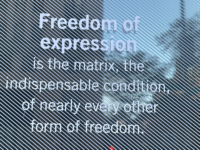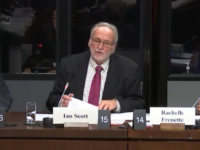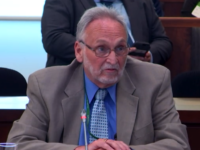The Standing Committee on Canadian Heritage opened its clause-by-clause review of Bill C-18 on Friday with some extensive questions about the scope of coverage of the bill and the opportunity to vote on several amendments. The meeting finally provided the chance to ask department officials for their views on key questions, including whether the government believes that services such as Reddit and Twitter are caught by the law (the answer was yes they are digital news intermediaries, but may not be sufficiently dominant to be required to negotiate mandate payments). The most important moment in the hearing came toward the end, when Conservative MP Rachael Thomas moved an amendment to exclude links from the scope of the definition of news content. That approach would still ensure that news publishers are covered for uses of their work such as republication (which is precisely what most would envision) but safeguard the foundation of the free flow of information on the Internet.
News
Oops, He Did It Again: CRTC Chair Ian Scott Tries to Walk Back Bill C-11 Comments, But Officials Confirm Power to Regulate User Content is in the Bill
CRTC Chair Ian Scott returned to the Standing Senate Committee on Transport and Communications last night, presumably hoping that his fourth House and Senate committee appearance involving Bill C-11 might allow him to say what the government clearly would like, namely that the bill will not lead to the regulation of user content. Yet Scott has failed each time, because the bill plainly does contain that power. In this instance, Scott embarrassed himself, the CRTC, and the entire legislative process as he demonstrably failed to defend the independence of the CRTC and zig-zagged between actively promoting the bill, claiming that was not his role, and even bizarrely offering to draft potential amendments.
In His Own Words: CRTC Chair Ian Scott on Bill C-11
As noted in yesterday’s post on CRTC Chair Ian Scott’s upcoming Bill C-11 appearance before the Senate Standing Committee on Transport and Communications, sources indicate that Scott requested the re-appearance in order to “clarify” his earlier remarks. Since those remarks were themselves a clarification of an earlier clarification, there is seemingly no end to Scott’s willingness to try to downplay the regulating of user content provisions that are plainly included in the bill. While the appearance itself raises concerns about government interference at the Commission, it is worth revisiting again what Scott has told both House and Senate committees with regard to Bill C-11.
Clarifying the Clarification of the Clarification: Why Yet Another Upcoming “Clarification” from CRTC Chair Ian Scott Demonstrates the Risks of Bill C-11 and Government Interference
CRTC Chair Ian Scott returns to the Standing Senate Committee on Transportation and Communications tomorrow for yet another appearance on Bill C-11. According to multiple sources, the appearance came at the Scott’s request, who is seeking yet another chance to “clarify” his earlier remarks. I’m hardly one to criticize multiple committee appearances, but the continued effort to clarify earlier comments smacks of political involvement. Indeed, when combined with the controversial Section 7(7) of the bill, it suggests that the government envisions a permanent erosion of the independence of the broadcast regulator in Canada.
Independence Lost: Why Bill C-18 Undermines An Independent Press Even as It Purports to Protect It
Last week, I appeared before the Standing Committee on Canadian Heritage as part of the last panel of witnesses on Bill C-18, the Online News Act. For the first time since the start of the pandemic I attended in person, which provided the opportunity to witness a scene that partly occurred off-camera. NDP MP Peter Julian started his questioning by citing with approval a Postmedia editorial, itself based on a Brian Lilley column. The editorial expressed support for Bill C-18, criticized Facebook, and took the Conservatives to task for not being more supportive of the proposed legislation. Seeing an NDP MP rely on a Lilley-inspired Postmedia editorial was strange enough, but adding to the weirdness was Liberal MP Lisa Hepfner scrambling to find the editorial on her phone and showing it around to caucus colleagues. While some might merely chalk this up to a common enemy – Facebook – I believe there is a bigger enemy at work, namely the loss of an independent press.











